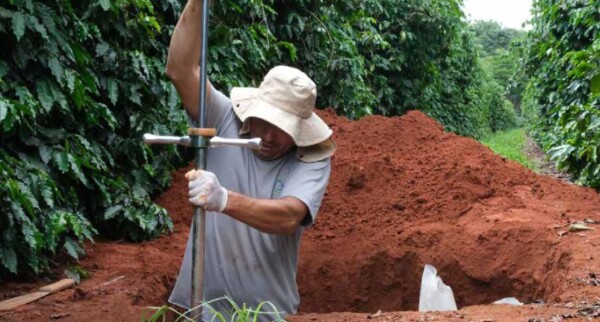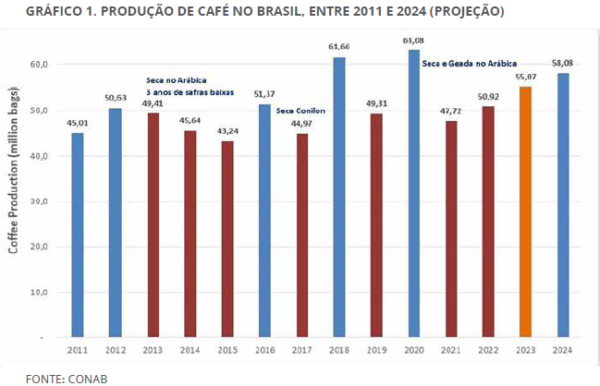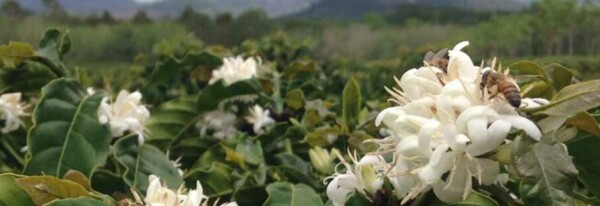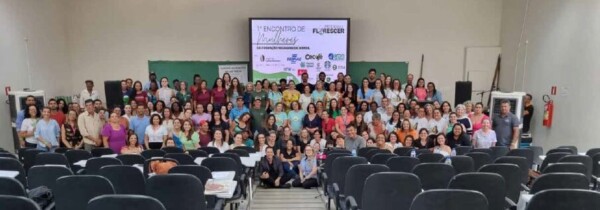Climate change, technological innovation, and social sustainability, with inclusion and diversity, will be the key themes for Cecafé in 2024.
ESG will remain a priority on the 2024 agenda for the coffee sector. A number of factors, such as the need to become more resilient to the effects of climate change, increasing regulatory pressure on the entire coffee supply chain, and consumer behavior that demands social and environmental responsibility in their beverages, are making transparency in ESG indicators a matter of competitive advantage for market access.
Below are the key ESG trends for 2024 and the export segment actions organized at Cecafé that will help keep Brazilian coffee at the forefront of global sustainability.
CLIMATE CHANGE ADAPTATION AND MITIGATION: The damage caused by climate change has been felt in recent years, and the adoption of measures to adapt to the new climate reality is essential to mitigate risks to the economic sustainability of coffee growing regions and the supply of coffee to the market.
Recent debates indicate that global carbon emissions are increasing every year, driven by the expansion of China, India and other developing countries. Meanwhile, global temperatures continue to rise, reaching unprecedented levels.

According to the World Meteorological Organization (WMO) and the European Union’s (EU) Copernicus Climate Change Service, 2023 was the warmest year on record compared to the pre-industrial period average of 1850-1900, with an increase of 0.17°C over the previous record, which was in 2016. Compared to pre-industrial levels, the average was 1.48°C higher, and this was the first year in which every day exceeded 1°C.
Given this scenario, it is very important that global policies are technically structured with short-, medium- and long-term goals and that they promote agricultural research and the adoption of best practices. For this reason, scientists, farmers, companies, and organizations have committed to implementing modern technologies that promote agriculture on an increasingly sustainable basis, with resilience to the negative effects of climate change, which has also affected the Brazilian coffee sector.
In terms of productivity, in 1976 Brazil produced 5.59 coffee bags per hectare. In 2023, productivity was at 30 coffee bags per hectare, according to official data from the National Supply Company (Conab). To put this in perspective, if Brazil were to maintain the technology of the 1970s, it would need about 10 million hectares to produce the same amount of coffee as it does today. It is worth noting that the country is the world’s largest producer, exporter and second largest consumer of coffee.
Despite the technological advances that have helped increase coffee productivity over the past five decades, the country has suffered from climatic anomalies. Brazil is a continental country, the fifth largest in the world in terms of area, with approximately 36 coffee growing regions. For example, as shown in Figure 1, the country has experienced periods of drought, high temperatures, hail, and frost in various agricultural regions since 2011, affecting crop production and productivity.

In Brazil, discussions on the climate agenda and the resilience of agricultural production systems are intensifying in preparation for the 30th Conference of the Parties to the United Nations Framework Convention on Climate Change (UNFCCC COP 30), to be held in the country in 2025. The development of scientifically based studies and data is essential to communicate to consumers and regulators the good practices already adopted in Brazilian coffee growing that enable a negative carbon footprint, as well as to identify opportunities for progress in actions to mitigate the impact of climate change on the sector, possibly in conjunction with the carbon market.
In this sense, in 2024, the coffee export segment, in partnership with StoneX and Allcot, will evaluate the opportunities and challenges that exist in the technical, legal, and economic dimensions for the development of a grouped carbon credit program in Brazilian coffee growing. Also in the coming months, the results of the greenhouse gas balance on Conilon coffee farming in Espírito Santo will be published. This is a Cecafé project, conducted by Imaflora and Professor Carlos Eduardo Cerri of Esalq/USP, with the support of global partners and stakeholders from the State of Espírito Santo.
he results of these initiatives will not only be used to promote the image of Cecafé but will also be crucial in supporting the public-private dialogue on climate change. To this end, Cecafé will officially represent the coffee exporting segment in the Sustainable Agrocarbon Forum of the National Council for Agricultural Policy (CNPA) of the Ministry of Agriculture and Livestock. This forum aims to develop policies that promote food security through productive, environmentally sound, and climate-efficient agribusiness.

GLOBAL REGULATIONS AND TRANSPARENCY: It is worth remembering that the due diligence obligations set out in the EU Deforestation Regulation (EUDR) will come into full effect on December 30, 2024. The European Union is also expected to make further progress in the coming months on the proposed Corporate Sustainability Due Diligence Directive, which will have an extraterritorial environmental and social responsibility impact on the supply chains of European companies. In addition, international standards attempting to define ESG will be consolidated to allow for comparable metrics, and multinational companies will need to adapt to new ways of communicating their social, environmental and governance practices and impacts, given the direct correlation between transparency and attracting investment.
As a result, transparency and pragmatism have become key words regarding ESG practices, and the solution adopted by the coffee export segment to comply with international regulatory requirements is in line with this market need. The Cecafé-Serasa Experian platform enables due diligence on coffee origins by providing up-to-date information from 180 official Brazilian public databases that assess and monitor socio-environmental issues, supported by national legislation. In addition, using the Rural Environmental Registry (CAR) and remote sensing technology, it is possible to automatically monitor land use changes in coffee growing regions, as required by the EUDR. This tool increases efficiency in the implementation of risk mitigation measures and supports the regularization of suppliers, who will benefit from opportunities to access credit at special conditions, as announced in the 2023/24 Crop Plan.

TECHNOLOGICAL INNOVATION: advances in systems equipped with artificial intelligence and resources such as machine learning will be at the forefront of the agribusiness innovation agenda in 2024. There are opportunities to improve productivity while protecting the environment by applying data analytics and identifying patterns that enable greater efficiency and lower costs in managing rural properties. Bringing more knowledge about artificial intelligence to the field is one of the goals for 2024, as part of the partnership Cecafé has established with Microsoft. The Informed Farmer Program, which already offers seven computer courses ranging from basic to advanced levels, will offer specific video lessons on artificial intelligence on its distance learning platform in the coming months, aimed at farmers and professionals in the coffee sector who want to improve their digital skills.
SOCIAL RESPONSIBILITY: regulatory pressure and consumer demand have broadened the scope of corporate governance for companies in coffee-importing countries, which now include the entire supply chain in their scrutiny of good social practices. The promotion of decent work and respect for human rights in coffee-growing regions is a trend that is here to stay. In 2024, ongoing communication on good labor practices and training for farmers and workers to comply with Brazilian labor laws will be another focus of Cecafé’s Social Responsibility and Sustainability pillar, in partnership with the Global Coffee Platform (GCP) and the National Pact for the Eradication of Slave Labor (InPACTO).
Diversity and inclusion, with a focus on women’s empowerment in the coffee sector, will also be a prominent theme this year. Cecafé is structuring new partnerships to work on Sustainable Development Goal 5 (gender equality), with the aim of supporting women in the coffee sector to receive training in management and sustainable production practices, while promoting their well-being and self-confidence. Promoting mental health and well-being deepens the link between the human (social) dimension and the other components of sectoral socio-environmental governance.
The alignment of Cecafé’s programs with the main ESG trends for 2024 demonstrates the export segment’s commitment to meeting the expectations of the most demanding markets in terms of sustainability, and to seeking greater recognition and appreciation for Brazilian coffee by verifying and demonstrating its socio-environmental compliance. With a focus on respect for people, the environment and governance that promotes transparency through traceability, Brazilian coffee remains at the forefront of global sustainability.

Marcos Matos
CECAFÉ CEO
Silvia Pizzol
CECAFÉ Sustainability Manager


Leave A Comment